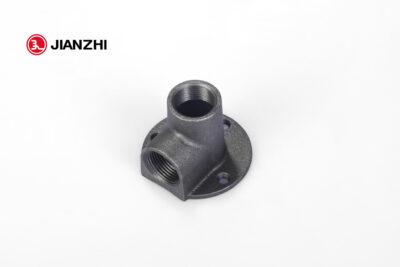What are some common materials used to make black pipe elbows?
Black pipe elbows are commonly made from the following materials:
Carbon steel.
Carbon steel is possibly the most common material used to make black pipe elbows. It is durable, inexpensive and suitable for many plumbing applications, including potable water supply lines. Carbon steel elbows can withstand high pressures and temperatures found in many plumbing systems.
Stainless steel.
Stainless steel elbows offer greater corrosion resistance than carbon steel. They are more durable and long-lasting. However, stainless steel elbows also tend to be more expensive than carbon steel. Stainless steel is a good choice for elbows in areas with corrosive soils or high salt environments.

Malleable iron.
Malleable iron elbows are ductile and can withstand stress without cracking or fracturing. They are strong and durable. However, malleable iron elbows tend to be heavier, more expensive and difficult to machine compared to carbon steel or stainless steel. Malleable iron elbows are rarely used today for black pipe.
Galvanized steel.
Galvanized steel elbows have a zinc coating that helps prevent rust and corrosion. The coating provides extra protection against weathering and the elements. Galvanized elbows tend to last longer than bare carbon steel, but at a slightly higher cost. Galvanization is a good option for elbows installed underground or in damp, humid environments.
Copper.
For some applications, copper elbows can also be used in place of steel or iron. Copper elbows are more durable, corrosion resistant and long-lasting but also significantly more expensive. Copper elbows provide the best performance for potable water supply but are impractical for most uses due to their high cost. Copper elbows are rare for black pipe applications.
In summary, carbon steel is by far the most popular and economical material for black pipe elbows. Stainless steel and galvanized steel provide extra corrosion resistance at a higher cost. Rarely are more expensive materials like malleable iron, copper or other alloys used. The specific material depends on your requirements, budget and installation environment.
